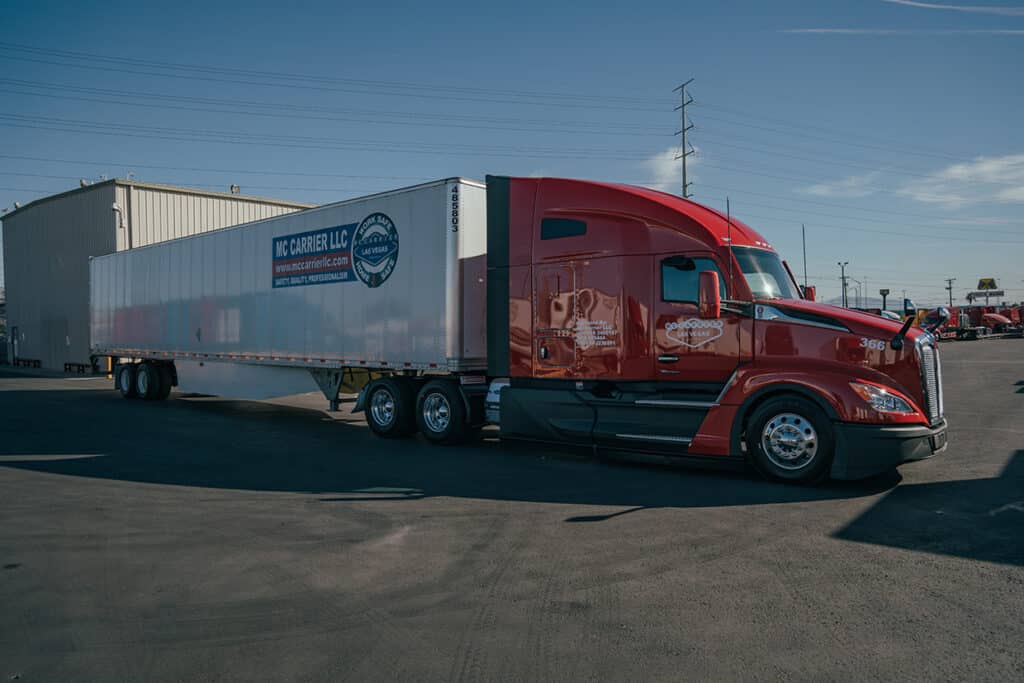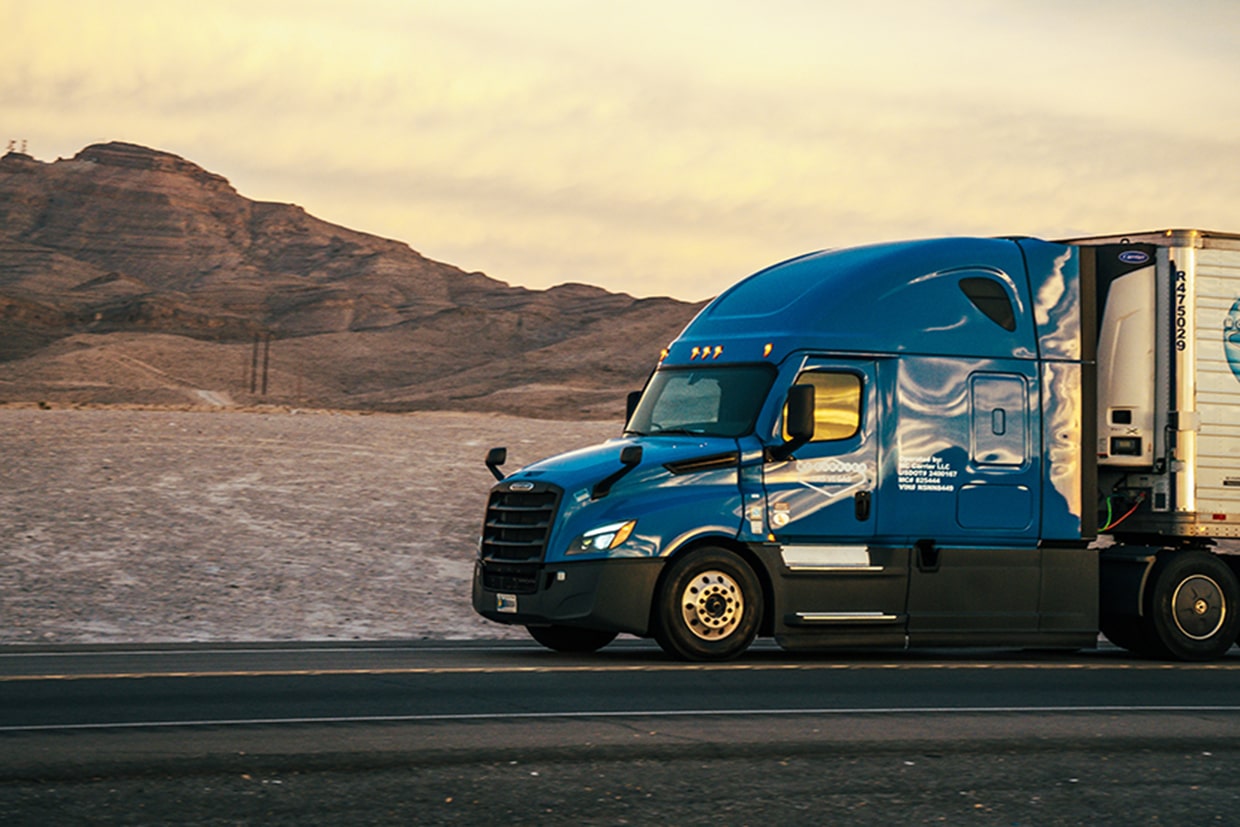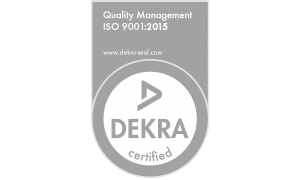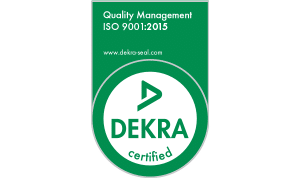If you’ve ever asked yourself, “What is dry van shipping?” you aren’t alone. That’s likely why there are numerous articles online explaining exactly what this type of shipping entails. So if you are tired of playing a game of Tetris every time you need to load up a truck with your company’s goods, or if you are fed up with your cargo being damaged or lost during transit- It’s time to say goodbye to those shipping headaches and hello to the world of dry van shipping!
Whether you’re shipping large quantities of lumber, laptops, or even lightbulbs, dry van shipping provides a safe and reliable solution for getting your cargo from point A to point B. In this blog, our professional shippers will break down what dry van shipping is, and who needs it and share some tips on how to ensure that your deliveries arrive on time and in one piece. So put down that packing tape and join the experts at MC Carrier LLC. on a journey into dry van shipping bliss.
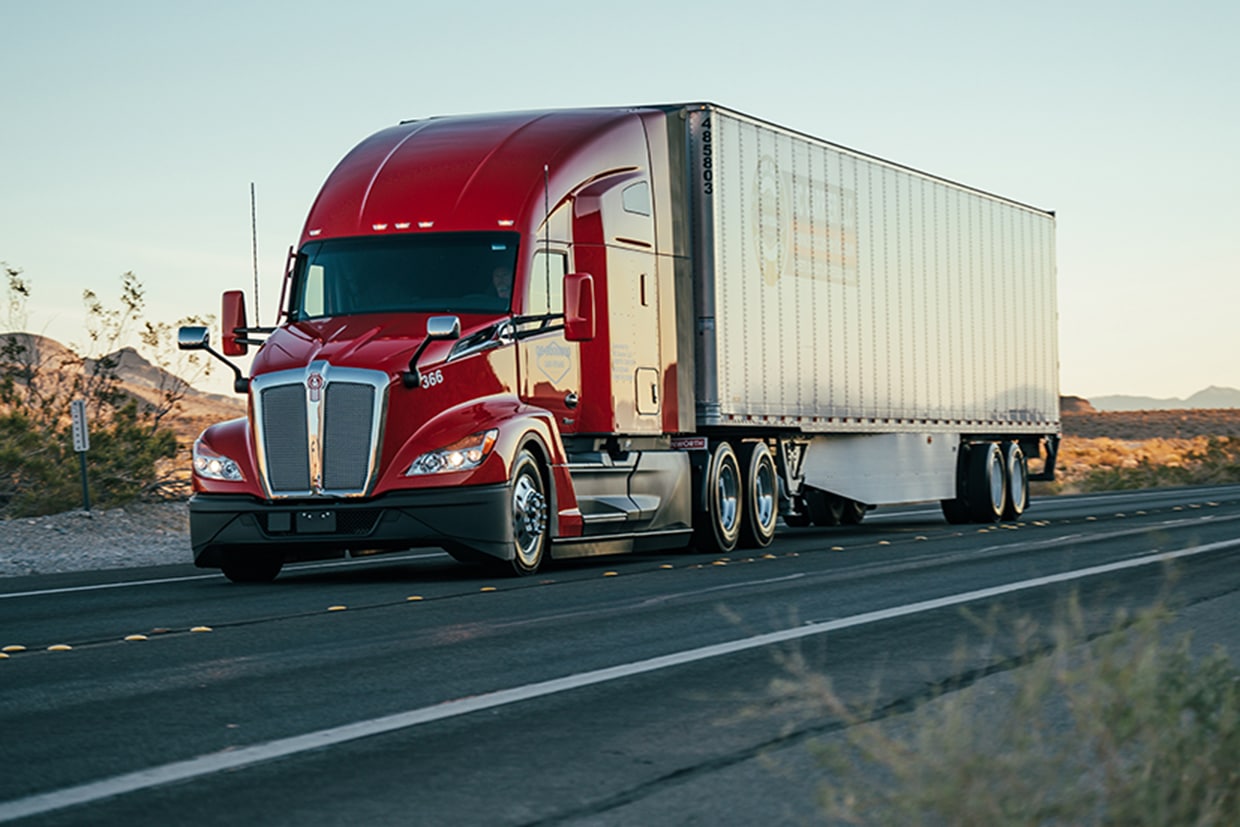
What is Dry Van Shipping?
Dry van shipping is a popular transportation option for businesses looking to transport goods across long distances. Dry vans are essentially large, enclosed trailers that are designed to protect goods from the elements during transit.
Unlike flatbed or open-air trailers, dry vans do not have any exposed sides or roof, providing a secure and weatherproof space for freight. The term “dry” refers to the fact that the trailer is not refrigerated, making it suitable for transporting non-perishable goods such as consumer goods, electronics, and building materials. Dry van shipping is a common mode of transportation for industries such as retail, manufacturing, and construction, and can be used for both regional and long-haul shipments.
What are some key features of dry vans?
Dry vans are fully enclosed trailers that come in a variety of sizes; typically dry van trailer dimensions range from 28 to 53 feet in length. They are designed to carry dry goods that don’t require refrigeration or special handling. Dry vans have a weight capacity of up to 45,000 pounds, depending on the trailer’s size and weight restrictions of the roads they will travel. Dry van dimensions will depend on the types of dry freight being shipped. The construction of dry vans typically includes aluminum or steel frames, fiberglass sidewalls, and a corrugated metal roof, providing a durable and weather-resistant solution for shipping dry goods. Dry vans use sealed containers to protect goods from external factors such as weather, dust, and theft during transportation.
How are dry vans different from other types of freight shipping methods?
Dry van freight shipping is the most common shipping form for dry goods, but there are other options available depending on the type of cargo being shipped. Flatbed shipping is an option for oversized or bulky cargo that won’t fit inside standard dry van shipping containers. Refrigerated shipping, also known as “reefer” shipping, is used for perishable goods that require temperature-controlled environments. This is another common shipping method for MC Carrier LLC. Intermodal shipping involves using multiple modes of transportation, such as trucks, trains, and ships, to move cargo across long distances.
Compared to these other types of shipping, dry van trucks are one of the most affordable options for businesses that need to transport large quantities of dry goods over relatively short distances. However, if your cargo requires special handling or temperature control, other shipping options may be more suitable to ship freight. It’s really important to know about dry van shipping options and whether or not they work with the goods you are shipping.

Who Uses Dry Van Shipping?
Dry van shipping is a popular option for many industries and businesses that require the transportation of goods across the country. As a business owner, you need to know about dry vans and whether they are a viable option for your particular business. Some of the industries that commonly use dry van cargo shipping include:
- Retail. Including clothing, electronics, furniture, home decor, toys, and more. These goods can be shipped in a pallet from warehouses or distribution centers. Retailers may also use shipping services to receive inventory from manufacturers or suppliers. The type of goods being shipped can vary depending on the retailer’s industry, target market, and seasonal demand. Effective and efficient shipping is crucial for retailers to ensure their customers receive their products in a timely and satisfactory manner, and to maintain a positive reputation in the industry. When you use a dry van service from MC Carrier LLC. you get just that!
- Manufacturing. Manufacturers use dry van box trucks to move raw materials, finished products, and equipment between production facilities. Some of the common types of freight that manufacturers may ship include raw materials, such as metal, wood, and plastic, as well as finished goods, including machinery, electronics, appliances, vehicles and loose freight. Additionally, manufacturers with parts and components to their assembly plants are shipped in a dry van. Other freight transportation methods may be utilized depending on the types of freight being shipped.
- Construction. These companies choose dry vans to transport building materials and supplies to job sites. A construction company may ship various materials and equipment in a dry van, such as building materials (lumber, drywall, bricks, etc.), heavy equipment (excavators, bulldozers, loaders), tools and supplies (power tools, hand tools, safety equipment), pipes and fittings, and electrical components. Dry vans are a versatile option for transporting dry freight, providing security and protection during transit and during the loading and unloading process.
A wide range of goods and products can be transported via dry van, including consumer goods, building materials, electronics, and more. Unlike refrigerated containers, a dry van trailer is designed to be used for goods that do not require refrigeration or special handling during transit. Top shipping companies will provide options for temperature-sensitive freight. MC Carrier LLC. has several freight transportation options, including dry vans, refrigerated “reefer” trailers, and standard flatbed trucks, as well as shipping options for hazmat, oversized and overweight freight, and a variety of cargo.
There are several benefits of dry van transport for businesses. One of the primary benefits is its versatility – dry vans can be used to transport a wide range of products and goods, palletized or boxed cargo, making them a great option for businesses with diverse shipping needs as trailers are fully enclosed and protected from weather and theft. Dry van shipping is also cost-effective compared to other shipping methods such as air freight. Additionally, dry vans on the road offer accessibility to a wide range of destinations despite bad weather, as dry vans can typically travel on any road that can accommodate large trucks. Shipping goods in a dry van are guaranteed to be shipped safely, securely, and protected from the elements.
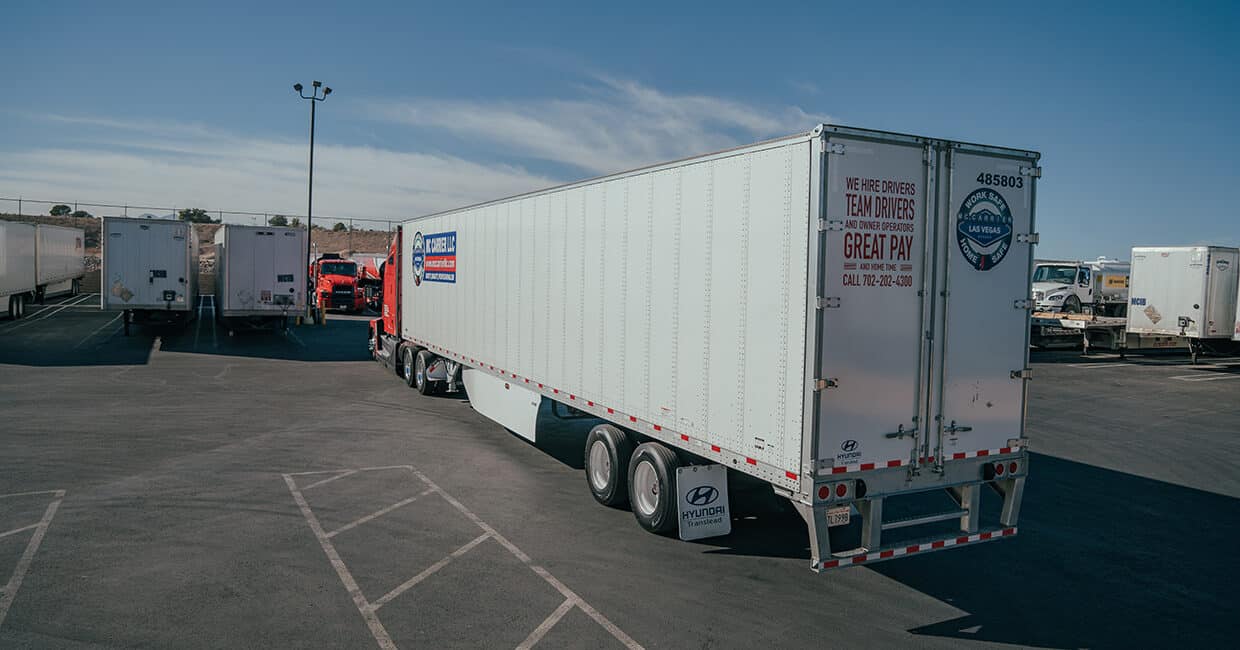
How to Choose the Best Dry Van freight Shipper
When it comes to selecting dry van shipping services, there are several key factors to consider to ensure safe and reliable deliveries. Some important factors when choosing a dry van freight shipper include the following:
- The provider’s reputation and experience in the industry. Look for a provider with a proven track record of success, as well as experience handling your specific type of cargo.
- The quality of their equipment, including the condition and maintenance of their dry vans. Make sure the provider’s dry vans are well-maintained and regularly inspected to prevent any potential mechanical issues that could delay or damage your shipment.
- The shipping company’s safety record and certifications. Look for providers with a solid safety record and relevant certifications, such as a USDOT number, which indicates that the provider meets federal safety standards. You want a widely trusted freight transportation company like MC Carrier LLC.
- A reliable and experienced dry van provider can offer a range of benefits for businesses. These benefits include improved efficiency in the shipping process, reduced risk of damage or loss to cargo, and enhanced customer satisfaction due to timely and reliable deliveries.
Overall, taking the time to carefully research and vet potential dry van transport providers can pay off in the long run with safe, reliable, and efficient deliveries. To learn more about the benefits of dry van shipping options, contact the experts at MC Carrier LLC.
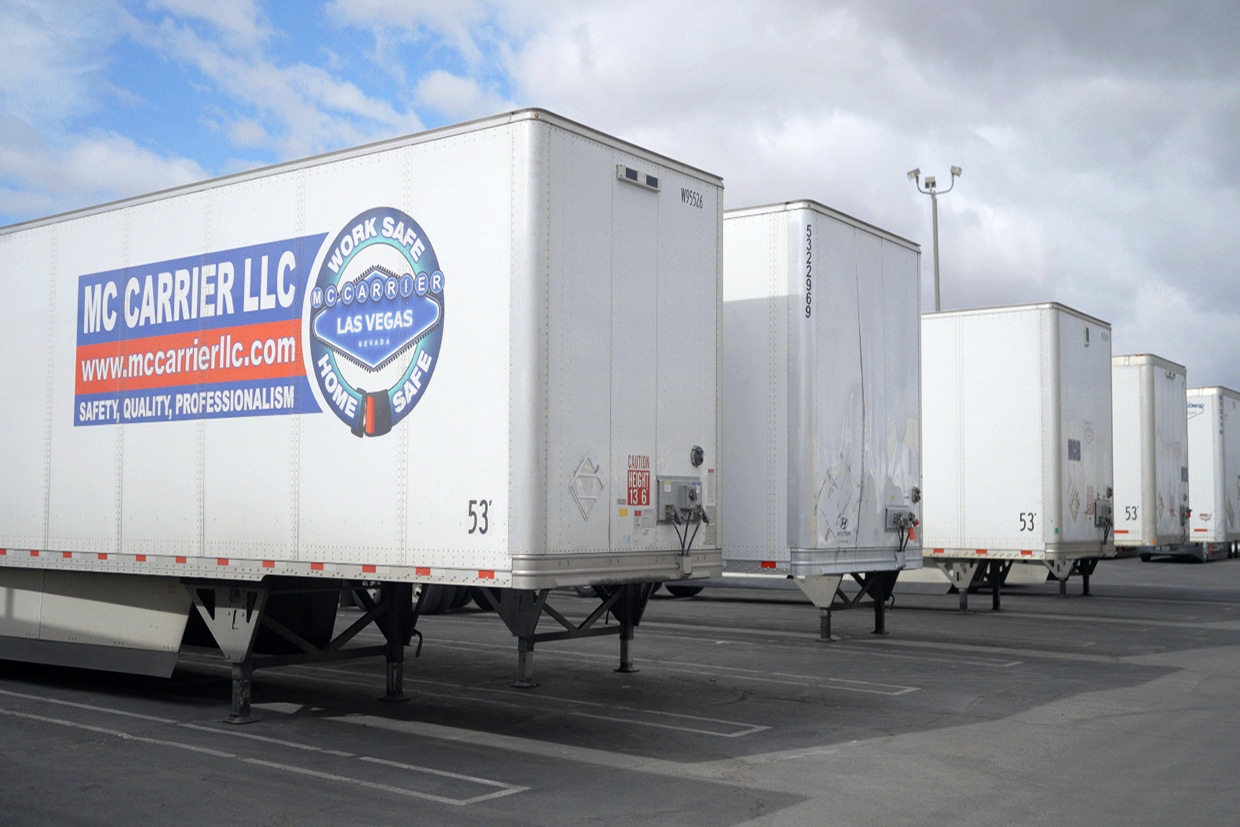
Dry Van Transport with MC Carrier LLC.: The Reliable Freight Shipping Solution for Your Business
Dry van shipping is one of the best transportation options for businesses of all industries and sizes. With their large size, weight capacity, and durable construction, dry vans are ideal for transporting a wide range of goods and products safely and efficiently. Retailers, manufacturers, and construction companies are just a few examples of the types of businesses that commonly rely on dry van shipping.
When selecting a dry van freight shipping provider, it’s crucial to consider their reputation, experience, and equipment. By researching potential providers, businesses can ensure safe and reliable deliveries while also improving efficiency and customer satisfaction. A partnership with a reputable and experienced dry van transportation provider can make a significant difference in the success of a business.
If you’re looking for a versatile and reliable shipping solution for your business, consider a dry van to ship freight. Take the time to research and select a reputable provider to ensure the safe and timely delivery of your goods. With the right dry van shipping partner, you can streamline your logistics operations and take your business to the next level. There are many benefits of using dry van transport methods. To find out more about our affordable shipping options contact MC Carrier LLC.

